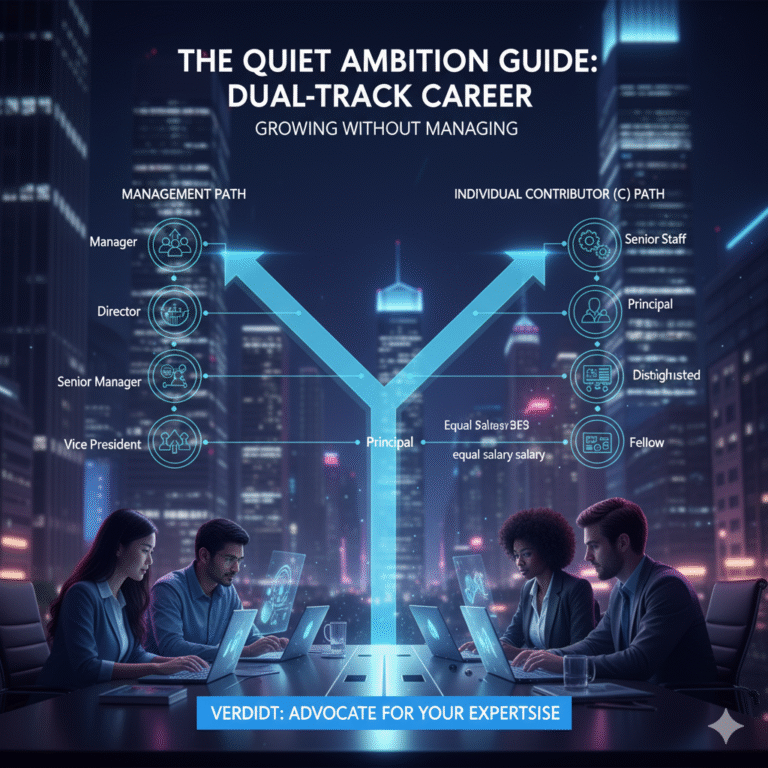How to Find a Mentor Who Can Actually Accelerate Your Career (And What to Do When You Find One)
Advertisement
In the world of professional development, “get a mentor” is perhaps the most common piece of advice given to ambitious individuals. It’s treated as a universal solution for a stalled career, a magic key that unlocks hidden doors and fast-tracks you to success. But this advice is frustratingly vague. It skips the most important parts: How? Where? And… what do you *do* if you actually find one?
Most people get it wrong. They treat it like a transaction, cold-emailing successful strangers with a high-friction, low-value request: “Will you be my mentor?” This almost never works. Why? Because it’s a huge, undefined ask. It’s a request for a job, not a relationship. It places the entire burden of labor on the successful person.
A true mentor isn’t a coach you hire or a therapist you vent to. A mentor is a strategic accelerator for your career. Finding one isn’t about luck or making a desperate plea. It’s a proactive process of *earning* the right to someone’s invaluable time and experience. This guide provides a strategic framework for how to find a mentor who can genuinely accelerate your trajectory, and exactly what to do to *keep* them.
Why a Mentor Is a “Career Accelerator,” Not a Crutch
Before you begin the search, you must understand the goal. A mentor provides one thing that you cannot buy or learn in a book: judgment. They have already walked the path you are on, made the mistakes you are about to make, and seen the patterns you can’t yet recognize.
A mentor’s value is in their ability to collapse time. They can save you five years of trial-and-error with a single 15-minute conversation. Their job is not to do the work for you or find you a job. Their job is to help you avoid the “career landmines” and point you toward the high-leverage opportunities. To accelerate your career, you must first seek to learn from their perspective, not to gain from their network.
The Cardinal Sin: How NOT to Find a Mentor
The number one mistake professionals make is confusing “admiration” with “relationship.” They see someone they admire on a podcast or LinkedIn and immediately send a direct message. It usually looks like this:
“Hi [Successful Person], I really admire your work. I’m a young professional trying to break into [Industry]. Would you be willing to mentor me?”
This fails for three reasons:
- It’s a “Take” Request: It offers zero value and asks for an enormous, undefined commitment of time.
- It’s Vague: “Mentor me” means nothing. Does that mean a one-hour call? A weekly meeting? A lifetime commitment? The mentor has no idea what they are signing up for.
- It’s Premature: You are asking a stranger to invest in you without any proof that you are a good investment.
You can’t *ask* for a mentorship. You have to *earn* it. The relationship is the *byproduct* of a value-first interaction.
A Strategic Framework: How to Find a Mentor (The Right Way)
Forget the idea of “finding a mentor.” Instead, focus on “finding an answer to a specific problem.” This reframes the entire process from “taking” to “learning.”
Step 1: Define Your “Specific Ask” First
You don’t need “a mentor.” You need “guidance on a specific, high-stakes problem.” Before you even think of *who* to ask, you must define *what* you need to know.
A bad, vague goal: “I want to be a leader.”
A good, specific goal: “I am a senior engineer managing my first two junior developers, and I am struggling to delegate effectively without micromanaging.”
This level of clarity is the first step to find a mentor, because it narrows your search from “any successful person” to “someone who has successfully navigated the transition from individual contributor to manager.”
Step 2: Become a “Mentee-in-Waiting” (Give Value First)
Once you identify a few people who fit your specific need, your job is not to contact them. Your job is to get on their radar in a valuable, non-demanding way. Become a student of their work.
- Follow them on social media, read their blog, or listen to their podcast appearances.
- When they post something insightful, share it with your own thoughtful commentary (and tag them). Don’t just “like” it; add value to the conversation.
- If their advice helps you, send a “Thank You” email with *zero* ask. “Hi [Name], I’ve been following your work on [Platform]. Your advice on [Specific Topic] helped me solve a problem with [Specific Result]. Just wanted to say thank you.”
This is a “value deposit.” You are establishing yourself as a thoughtful, action-oriented person who respects their work, not just another fan asking for a handout.
Step 3: Make the “Micro-Ask”
After you have been on their radar for a while (this could be weeks or months), you have earned the right to ask a *small, specific, respectful question*. This is the “Micro-Ask.”
Your email should look like this:
“Hi [Name], I hope you’re well. Your insights on [Topic] have been incredibly helpful.
I’m currently applying your framework to [My Specific Situation], but I’m stuck on one specific point: [Your single, well-researched question that cannot be Googled].
I know you’re extremely busy, so no pressure to reply. Any brief thought you have would be invaluable.”
This is easy for them to answer. It shows you’ve done the work, respects their time, and gives them an easy “out.” This is how you find a mentor—by starting a high-quality conversation, not by asking for a job title.
You Found One. Now What? (How to Maximize the Relationship)
Let’s say they respond. You’ve had a great exchange, maybe even a 20-minute call. A relationship is forming. Now, what to do when you find one? This is where most people fail a second time. They get the relationship and then squander it.
Here are the non-negotiable rules for being a good mentee.
Rule 1: You Are the Driver. Never, Ever Waste Their Time.
You are 100% responsible for the logistics and value of this relationship. The mentor is the scarce resource; you are not.
- You set the agenda: Never show up to a call and say, “So, what’s new?” You must send an agenda *in advance*. “Hi [Mentor], looking forward to our call. My three specific challenges are 1, 2, and 3.”
- You manage the clock: Start the call on time. End it on time (or early).
- You come prepared: For every problem you present, you must also present your *attempted solutions*. “Here is the situation. Here is what I’ve tried. Here is where I’m getting stuck.” This shows you aren’t looking for them to solve your problems, but to guide your problem-solving.
Rule 2: Be Radically Coachable
Your mentor’s advice might be challenging. It might contradict your current beliefs. Your job is not to defend your actions; it’s to listen and absorb. Ask clarifying questions, but do not be defensive. If you argue or make excuses, you are signaling that you are not coachable. They will stop investing their time in someone who won’t use it. This is the fastest way to *lose* a mentor.
Rule 3: Always Report Back (The Feedback Loop)
This is the most important rule. Mentors are successful people. They are motivated by seeing results. Your “payment” to them is showing them a return on their investment.
After a meeting, go and *do the work*. Then, a few weeks or a month later, send a brief update:
“Quick update: You advised me to [Specific Advice]. I did it. It was difficult, but here was the result: [Specific, Positive Win]. Thank you. That was a game-changer.”
This is the “feedback loop” that makes a mentor *invested* in your success. It proves their time was well-spent and makes them *want* to help you again. This is how you accelerate your career. You make successful people feel successful by helping you.
Conclusion: From Taker to High-ROI Investment
Stop trying to “get a mentor.” Start focusing on how to be a person worth mentoring. The question is not how to find a mentor, but how to earn their guidance.
Be a student first. Provide value. Ask specific, intelligent questions. Be relentlessly prepared. And always, always report back on your results. When you do this, the relationship will evolve naturally. You won’t have to “ask” them to be your mentor; you will already be their mentee. You will have proven that you are not a cost on their time, but one of the best investments they can make. That is the real secret to accelerating your career.







